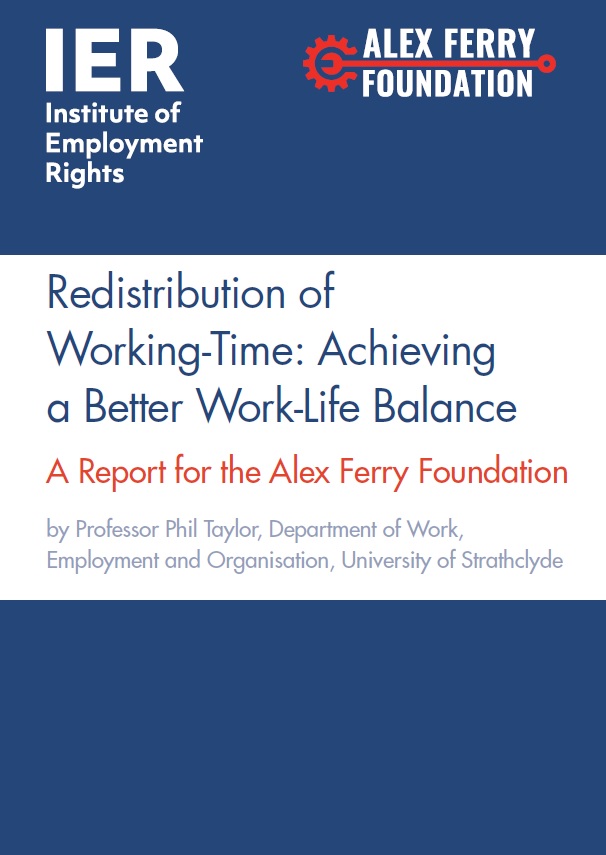Redistribution of Working-Time: Achieving a Better Work-Life Balance
Introduction and Background
– In recent years, debates on the benefits of shorter working time have proliferated across Europe and the
UK. particularly in the wake of the Covid-19 pandemic.
– Arguments in favour of fewer working hours, often framed around the four-day week, have accumulated:
improved workers’ mental and physical health, better workplace safety, enhanced work-life balance.
Simultaneously, a compelling case is made that well-rested workers contribute to increased productivity.
– However, a narrow fixation on the four-day week, as policy or statutory objective, may overstate the
benefits that may accrue. A more appropriate approach, focused on reduced working time or hours,
informs this study.
– Over four decades, productivity increases, particularly in engineering and manufacturing, have not been
matched by reduced working time, nor compensated for by increased wages.
– The important case for shorter working time in the UK is amplified in that UK workers work longer hours
than their counterparts in any country in Europe. They suffer from very high rates of occupationally
related illness, whether stress, depression or anxiety, and musculoskeletal disorders. In recent decades,
they have experienced significant work intensification, tightened sickness absence procedures and, often
harsh, performance management.
– An important context is the momentous impact of Covid-19, a watershed episode for workers, potentially
prompting re-evaluation of their priorities regarding their work and personal lives.
– Over thirty years have elapsed since the CSEU’s ‘Drive for 35’ campaign by engineering and manufacturing
workers, which achieved industry-wide reduction from 39 to 37 hours. Against this background, then,
revisiting the case for shorter working time is a timely undertaking.
Click the image below to read the full report.




